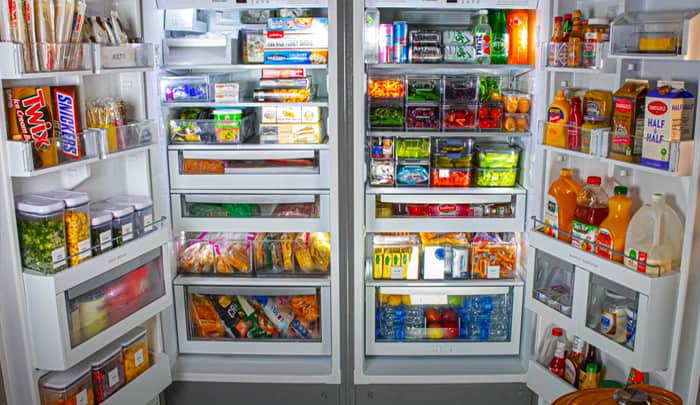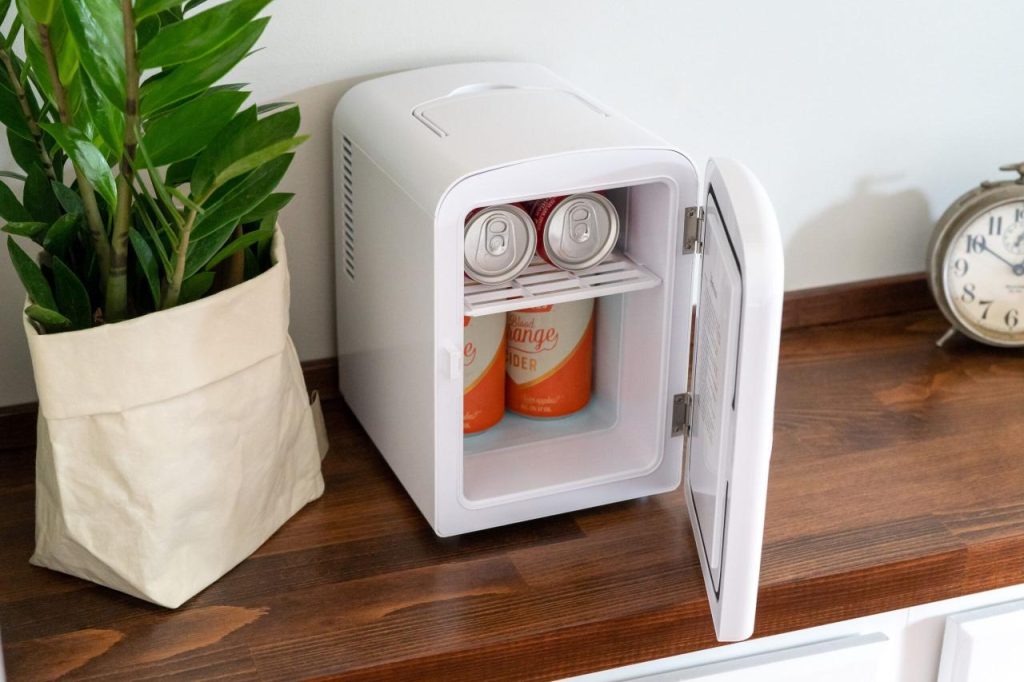Mini fridges stand out as popular appliances, prized for their compact size and convenience, effortlessly integrating into confined spaces such as dorm rooms or office corners. However, a common query that arises pertains to the necessity of a dedicated electrical circuit for the safe and efficient operation of these compact refrigerators.
So, does a mini fridge need a dedicated circuit? In this informative piece by Cook Eat Delicious, delve into the electrical requirements of mini fridges, uncover the significance of dedicated circuits, and explore essential considerations for ensuring the secure and effective power supply to your mini fridge. Unravel the complexities of powering these small yet indispensable appliances for optimal performance and longevity.
Learn about electrical circuits and mini refrigerators
Understanding Electrical Circuits and Mini Fridges
Before delving into the question of whether a mini fridge necessitates a dedicated circuit, it’s crucial to comprehend what an electrical circuit is and its relevance to appliances like mini fridges.
What is a Dedicated Circuit?
In the realm of home wiring, a dedicated circuit is reserved for a specific purpose, complete with its dedicated circuit breaker in the electrical box. This configuration ensures that the circuit is designated for the exclusive use of a single appliance, preventing the appliance from sharing power with other devices.

Power Requirements of a Mini Fridge
Every electrical appliance, including mini fridges, comes with specific power requirements. Although these requirements are generally lower than those of larger appliances, they remain significant. The power needs of a mini fridge hinge on variables such as its size, model, and frequency of use. Understanding these factors is pivotal in determining the adequacy of power supply for optimal performance.
Does a mini fridge need a dedicated circuit?
Determining the Need for a Dedicated Circuit for Your Mini Fridge
The necessity of a dedicated circuit for a mini fridge hinges on various factors, primarily influenced by the appliance’s power requirements and the presence of other devices sharing the same circuit.
Evaluating Your Mini Fridge’s Power Consumption
While mini fridges typically have lower power consumption compared to their full-size counterparts, they can still draw a notable amount of electricity, particularly during startup.
Should your mini fridge share a circuit with other appliances that also demand significant power, there is a potential risk of overloading the circuit, particularly when these devices operate simultaneously. Assessing the power needs of your mini fridge in conjunction with other connected appliances becomes essential in determining whether a dedicated circuit is warranted for safe and efficient operation.

Ensuring Safety
From a safety standpoint, dedicating a circuit to your mini fridge serves as a preventive measure against circuit overloads. Overloaded circuits can result in tripped breakers and, in extreme cases, pose a risk of electrical fires. Allocating a dedicated circuit enhances the safety of your electrical system, mitigating potential hazards associated with overloaded circuits.
Optimizing Efficiency
From an efficiency perspective, a dedicated circuit ensures that your mini fridge functions optimally without being impacted by the power demands of other appliances. This dedicated power source allows your mini fridge to operate at its best, maintaining consistent performance without fluctuations caused by simultaneous use of other devices on the same circuit. This not only enhances the efficiency of your mini fridge but also contributes to overall energy efficiency in your home.
The Role of Circuit Capacity in Appliance Operation
Delving into the realm of circuit capacity sheds light on whether a mini fridge necessitates a dedicated circuit. Understanding how electrical circuits function, the power draw of a mini fridge, and the repercussions of circuit overloads are key components in this exploration.
Circuits and Loads: The Basics
In home electrical systems, circuits are designed to manage a specific amount of electrical load, measured in amperes (amps). An overloaded circuit occurs when the total amps drawn by all appliances surpass the circuit’s capacity. This is a pivotal reason why high-power appliances often have their dedicated circuits.
Mini Fridge Power Draw and Circuit Overload
Despite their smaller size, mini fridges can draw a noteworthy amount of power, particularly during startup cycles. If other high-power appliances share the same circuit, there is a potential for circuit overload. This can manifest as a tripped circuit breaker and, in severe cases, pose a fire risk.
Considering the capacity of the circuit and the power draw of all connected appliances becomes imperative in determining whether a dedicated circuit is necessary for a mini fridge, or any other appliance. Seeking guidance from a qualified electrician ensures the safe and efficient operation of all home appliances.
In conclusion, while it may not always be mandatory, having a dedicated circuit for a mini fridge can be a prudent choice, especially if the appliance sees frequent use or shares a circuit with other high-power devices. When dealing with electrical wiring and appliance installations, consulting with a qualified electrician is paramount to ensuring safety and compliance with local electrical codes.







